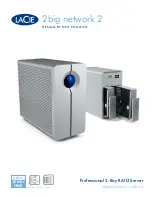
TCO
Reinvented
Copyright IBM Corporation 2009
10
The lack of software license fees differentiates the XIV system from the vast majority of
systems on the market. Most traditional tier-1 storage systems have complex pricing
models that, by nature, inflate system cost and complicate attempts to assess true TCO.
Such enterprise storage pricing schemes commonly involve: itemized hardware and
infrastructure costs, itemized license fees for software features, including for their initial
purchase, upon capacity increase, and annual license renewals, as well as other software
fees, such as for version compatibility.
The XIV system's native self-healing and load-balancing mechanisms offer the added
cost-benefit of sparing or minimizing any purchase of peripheral software enhancers,
such as performance optimization tools.
Summary: How to reduce acquisition costs
The IBM XIV Storage System helps organizations minimize capital outlay by means of:
►
A single-tier architecture
►
Hardware as an interchangeable, upgradable commodity*
►
Inexpensive VHDSR disks
►
Reduced capacity needs, up front and ongoing
►
Easy scaling
– and on the same platform
►
Built-in features and performance optimization
* Also enables organizations to exploit declining storage costs and efficiency improvements
Environmental Costs
The IBM XIV Storage System is an extremely “green,” environmentally advantageous
system, offering up front and ongoing savings in power, cooling, and floor space. These
savings are so substantial that they alone can cause the XIV system’s TCO to be much
lower than that of a comparable system.
Power and cooling consumption
The XIV system offers a power and cooling savings of at least 63% over comparable
high-end enterprise systems. Simple math shows how:
High-density disks typically feature 7200 RPM, in contrast to the speedier 10K/15K RPM
of Medium Density Fast Rotation (MDFR) disks. A VHDSR drive-based system, then,
Industrial manufacturer:
“The all-in-one software [of XIV] is great—
with our previous vendor, retroactive version control was costing us
more than the upgrade charges on extra disk space."







































